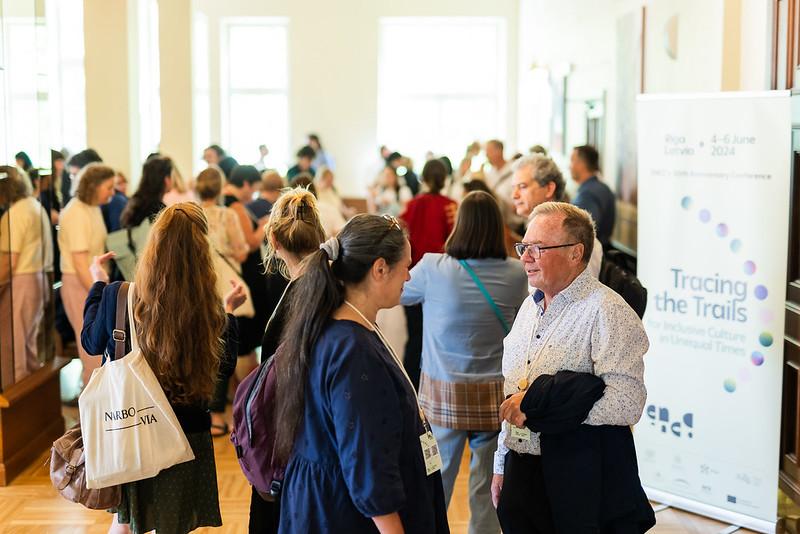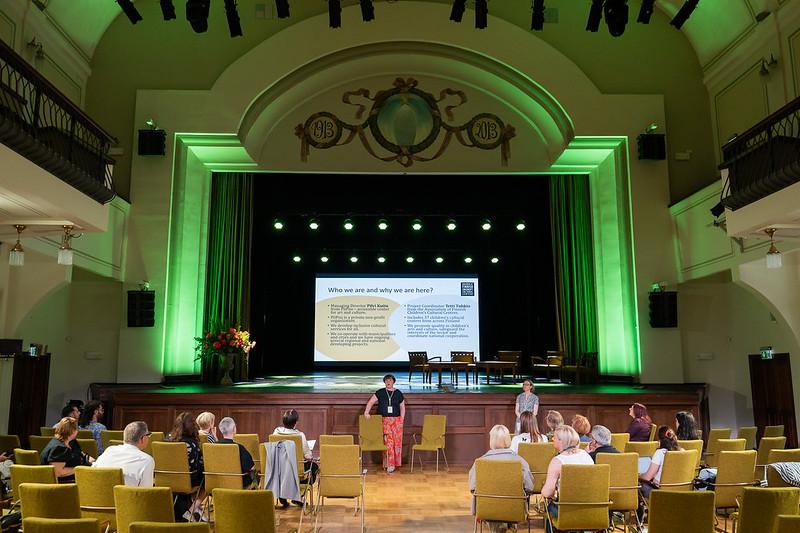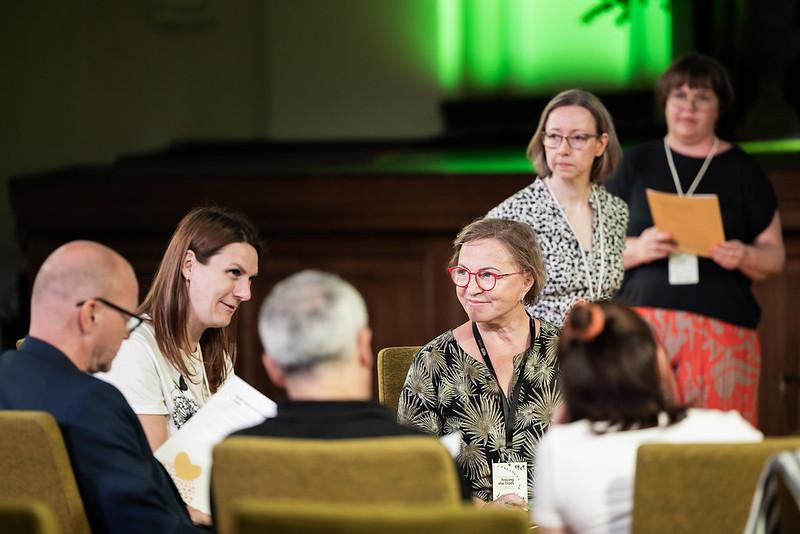International cooperation brings impact and much-needed motivation to the workplace. The Association of Finnish Children’s Cultural Centers is a member of several international networks, including the European Network of Cultural Centres (ENCC). Cooperation between the networks was further strengthened when, in early June in Riga, a group of representatives of the Association attended the annual congress of the ENCC. Aleksi Valta, the Association’s Director, was elected to the ENCC Board and a workshop was held to present the Finnish Model for Accessible Leisure Activities.
Active participation in international networks brings many benefits to our national cooperation – we can share good Finnish practices, find potential project partners, promote our members and hear about interesting foreign projects and initiatives. At the same time, networking puts domestic cultural policy and children’s culture in a European context. The member benefits offered by ENCC, such as workshops, projects and training, are also open to the association’s members.

In search of a common vision for accessibility
Tracing the Trails Congress was an invitation to problematise, get inspired, and conceive new approaches to access and inclusion. And it surely did it, at least for us.
The Association of Finnish Children’s Cultural Centers is currently leading a project aimed at fostering inclusivity in hobbies. The goal is to ensure that everyone, particularly children and young people, has the freedom to select artistic, cultural, and other activities based on their interests, rather than being confined to options tailored for specific groups.
In Riga, we introduced our work which consists of a set of accessibility recommendations for hobby organisations, a new labelling method suitable for all hobby organisations, and the traffic lights tool which helps hobby organisations to assess the current level of accessibility within their organisations and prioritise tasks for improvement.
The workshop was a success. Together with about 30 participants from different parts of Europe, we searched for a mutual understanding of accessibility and diversity. We had a vivid discussion on the issue and found many new perspectives and new ways to make progress.

A glimpse at new opportunities to promote accessibility
At the congress, we met cultural professionals from 15 countries. A wide range of ideas emerged on how we could share knowledge and work together in the future. The Association of Finnish Children’s Cultural Centers will continue its work to promote accessibility and an international webinar is already planned for the autumn. Stay tuned and keep an eye on the association’s English newsletter and Facebook page!


